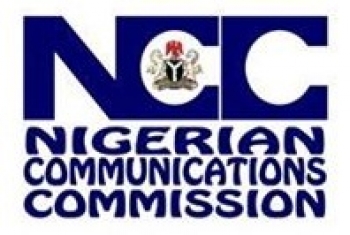NCC strategies since 2015 fired up the telecoms industry in Nigeria[Series 4]
Since Prof. Umar Garba Danbatta, a professor of telecom engineering was appointed by President Muhammadu Buhari On August 4, 2015, and subsequently confirmed by the Senate on November 25, 2015, as the Executive Vice Chairman/CEO of the Nigerian Communications Commission (NCC), the regulatory authority for telecommunications in Nigeria, he has, with the support of the board, management and staff of the commission, developed concrete strategies that has fired up the telecom industry in Nigeria.
Here below are some of the strategies that has been fundamental to the growth of the telecon regulatory agency and the telecoms industry as a whole
Ensuring Regulatory Excellence and Operational Efficiency
It is important to state that all the successes so far recorded in the Nigerian telecom sector in the last four years have been as a result of its enthronement of regulatory excellence and operational efficiency. Today, its role as telecom industry watchdog has been able to stamp out monopoly through engendering healthy competition and protecting the interests of both the service providers cum investors as well as the subscribers. Local and international awards have come the way of the Commission in droves in recognition of its efforts in this regards.
Consistent with its commitment to engender operational efficiency, the Commission in inaugurated the use of a five-storey building constructed by Commission, in 2019, essentially meant to complement its Maitama Headquarters Building. Located at 1253 Cadastral Zone, Mbora District, Abuja, the project had been abandoned for a long period for lack of funds to complete the massive structure. Besides providing nearly a hundred-room office accommodation, the new building is equipped with facilities such as swimming pool, lawn tennis courts, underground car parks and a 600-seater auditorium for conferences and seminars.
Currently, no fewer than five departments of the Commission have since moved into the new building now called ‘NCC Head Office Annex’, using the world-class facilities and this has improved their operational efficiency. The move has also helped to significantly decongest the Head Office Building of the Commission located at Maitama District, Abuja for effective regulatory operations. More importantly, the continuous hosting of most of the Commission’s activities inside the 600-seater auditorium architecturally situated within the new building is said to have been resulting in appreciable cost-saving for the Commission. This move, thus, gives concrete expression to the Commission’s compliance with the cost-cutting measures of the Federal Government as directed by the supervising ministry.
Deepening Stakeholder Engagements
Since 2015, no week has passed without the NCC engaging with one group or agency of governmnet or the other across the country. This, the Commission considered important because of the daunting tasks and challenges in the industry. So far, the regulator has had consultations with several stakeholders as critical success factor in its regulatory mandate and consultations with stakeholders had yielded enormous positive results.
For instance, apart from the monthly Telecom Consumers Parliament, the Commission has always engaged the Nigerian Governors Forum (NGF), collectively and individually, to address industry challenges, in the areas of multiple taxation, regulations and Right of Way, among others. These engagements, no doubts, have brought about effective partnerships with relevant stakeholders, thereby fostering ICT for sustainable economic development and social advancement. The Commission, in the last four years, has held several regional stakeholders fora across the six geo-political zones in order to sensitise various stakeholders on such issues as telecom infrastructure protection, invalidly-registered SIMs, and so on. Several fora are also being held with the academia and other professional bodies towards ensuring proper linkages in the industry.
Facilitating Telcos’ Listing on NSE
The credit for the listing of MTN Nigeria on the Nigerian Stock Exchange (NSE), in 2019, largely goes to the Nigerian Communications Commission (NCC) for its smart regulation of the nation’s telecoms industry through ensuring operators’ compliance with the rules of the game in the industry. The listing was one of the dividends of a ‘no-nonsense’, outstanding and effective regulatory posture of the Commission. The listing of MTN has, thus, served as tonic to other telcos to follow in the same direction such as the listing of Airtel.
As the country’s independent telecoms regulatory authority, the NCC essentially facilitated the landmark listing of the country’s largest telecommunications operator on the bourse in line with its mandate, as enshrined in the Nigerian Communications Act (2003) and other subsidiary regulations to promote investment, create a level-playing field for all licensees, ensure compliance to existing telecoms laws and facilitate delivery of top-notch quality of services (QoS) delivery to the consumers.
Suffice to say that through this smart regulation and intervention by the NCC, leading to the listing of MTN on the NSE, a new vista of opportunity has been created in the history of telecommunication industry in Nigeria. Through the listing, Nigerians are being empowered to own, control and manage shares in MTN Nigeria.
Commenting on the listing during a forum held in Abuja in 2019, the EVC of NCC had said: “The MTN listing has helped to translate into action, an important objective of the Commission, which is to promote local investment and ownership in the telecom sector. Also, with MTN shares available in the capital market, it is expected that Nigerians will buy shares and by purchasing the shares of MTN, they will be financially empowered and be socially transformed.”
“In addition to benefits to the consumers, we all know that telecoms is a capital-intensive industry and of late, we have found out that the inflow of Foreign Direct Investment (FDI) into the sector has not been as much as it used to be and there is so much for the telcos to still do in terms of expansion and this expansion requires capital. Industry issue bordering on poor quality of service is being partly traced to lack of sufficient infrastructure to cover the entire country.
Also, one of the benefits of telcos listing on the NSE lies in the opportunity they have in raising more capital for network expansion, which will, in turn, bring about improvement in the quality of service delivery and quality of experience for telecom consumers.
Despite the seeming volatility of the Nigerian capital market, the telcos’ listing has helped in making the market capitalisation more bullish. Today, capital market regulator and shareholder bodies have commended the effort of the NCC in making the capital market more resilient through facilitating telcos listing - a move that was the results of the conditions for settling the sanctions imposed on MTN for violating subscriber registration rules in the telecommunications sector.
Boosting FG’s Push for Improved Security of Lives and Property
The NCC has lived up to expectation in the last four years of through aligning itself with the ongoing efforts of the Federal Government to improve security of lives and property for Nigerian citizens. This effort has been in the area of reinvigorating the implementation of the Emergency Communication Centres (ECC) project and the continuous cleaning up of the Subscriber Identification Module (SIM) cards database. The ECC project is an initiative capable of offering a round-the-clock access to Nigerians, who may seek help during emergencies or impending threats to life and property, wherever they may be in Nigeria by merely dialing 112 Emergency Number as unveiled today. This is aside several other socio-economic benefits this security-enhancing project brings to Nigerians.
First, in line with the decision of the Federal Government to enhance security of lives and properties in the country and in apparent response to public demand, the National Assembly, in 2003, enacted the Nigerian Communications Act (NCA) 2003 and in Section 107 (3) (a) & (b) of that Act, the NCC was given some mandates. The mandates include taking immediate steps upon the commencement of the Act to promote and enhance public safety through the use of a particular number which shall be designed as the universal safety and emergency assistance number for telephone services generally; and encouraging and facilitate the prompt deployment throughout Nigeria of seamless, ubiquitous and reliable end-to-end infrastructure for emergency communications needs.
Consequently, the Commission realised that the task of ensuring security is not the sole responsibility of the government or a government. Rather, all must be involved to bring the security situation under control because security threats are not limited to any section of the country. This informed why the NCC, in the last four years, has continuously paid special attention to the implementation of the ECCs.
The ECC project will definitely add a lot of value to our security architecture by providing useful information on emergency situations to the National Emergency Management Agency (NEMA) and other emergency and law enforcement agencies, which are expected to provide the much-needed help to Nigerians during emergency situations.
The ECC project got fully activated, following the NCC’s resolve to pay greater attention to the implementation of the ECC project in the last four years. Today, the number of operational ECCs has increased drastically to 17 states of the Federation and the Federal Capital (FCT), Abuja – 18 ECC in all. The list of beneficiary states includes: Benue, Kwara, Plateau, Kaduna, Kano, Katsina, Ogun, Ekiti, Ondo, Oyo, Edo, Akwa Ibom, Cross Rivers, Imo, Anambra, Enugu, Adamawa and the FCT, Abuja.
The commissioning of the National Emergency Toll-Free Number “112” and the Katsina State ECC to take care of the North-West geo-political zone was successfully carried out on September 23, 2019. Necessary preparations and arrangements are, however, ongoing towards ensuring successful launch/commissioning of such centres, including publicity and enlightenment in the remaining five (5) geopolitical zones and the FCT.
In recognition of the important role of the Commission in leveraging ECC to boost security in the country, the NCC was conferred with the award of Corporate Social Responsibility (CSR) in Security and Emergency Management while its Executive Vice Chairman, Prof. Umar Danbatta, was recognised as Nigeria’s Goodwill Ambassador in Security and Emergency Management. The recognitions were received at the 2019 Maiden Security and Emergency Management Awards hosted in Abuja last December by the Emergency Digest, in conjunction with the Centre for Crisis Communication.
Closely linked to the NCC’s efforts in implementing security-focused initiative was the Commission’s ongoing efforts towards sanitising the country’s SIM database for increased security in the country. In 2019, over 24 million invalidly-registered subscriber records were scrubbed (deduplicated) by the Commission via Automated Fingerprint Identification System (AFIS) in fulfilment of the mandate to establish a credible database of telephone subscribers.


Thu, Jan 23, 2020.
by Richard Adewunmi